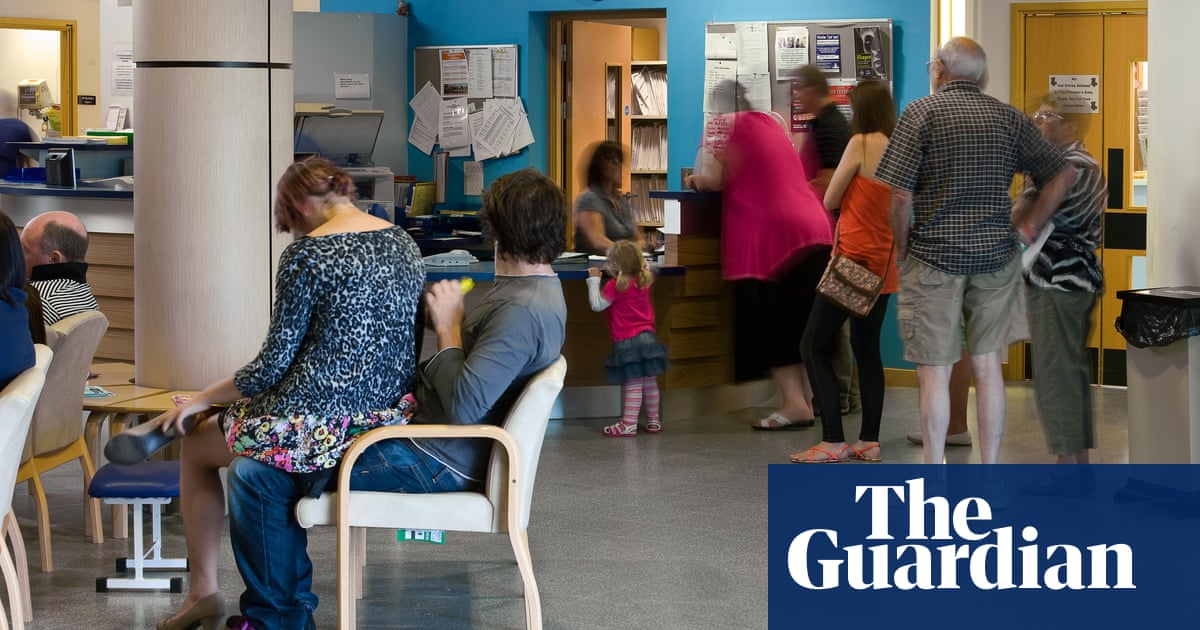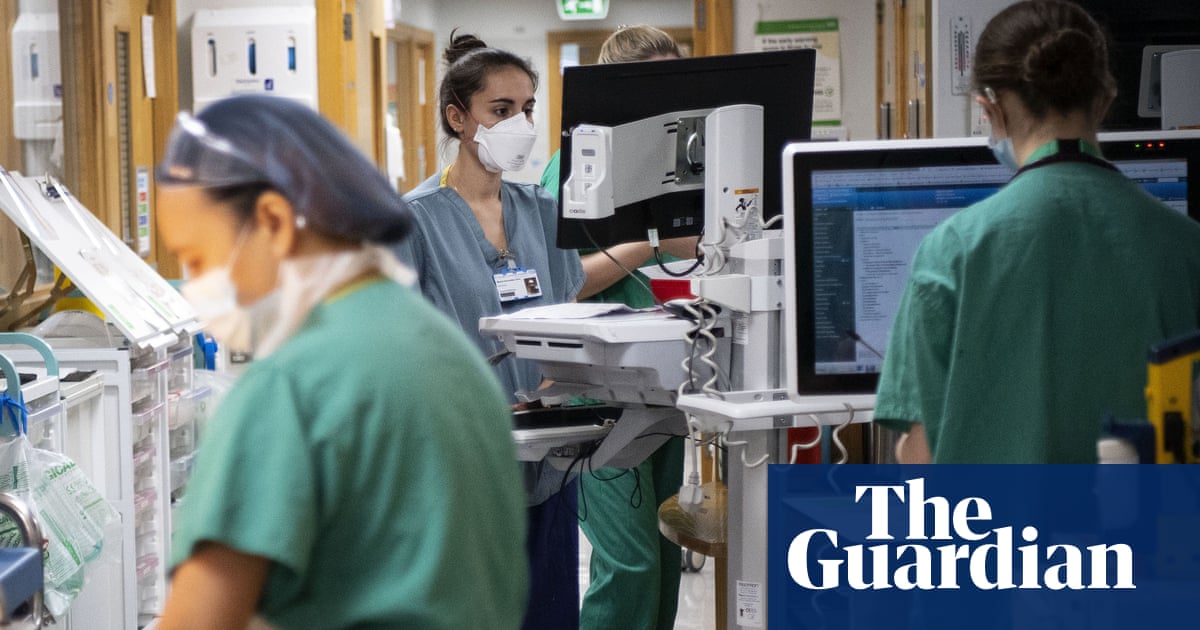
Just under 6 million people in England are now waiting for hospital treatment – a record high – as latest performance figures show how the NHS was struggling even before the Omicron Covid variant emerged.
A total of 5,995,156 patients were on the waiting list for an operation in November, of whom more than 2 million had already waited longer than the maximum standard of 18 weeks for routine treatment.
Figures published by the NHS underlined its growing inability to provide timely care. They also showed that more than 300,000 people have been waiting more than a year for surgery and that performance against the crucial four-hour A&E target is the worst ever.
The figures led to warnings from the Health Foundation thinktank that the NHS was “being stretched to its limits” and from the Liberal Democrat health spokesperson Daisy Cooper that “patients are being catastrophically let down by this government’s woeful neglect of the NHS”.
“With the NHS now in the thick of one of the most uniquely challenging periods in its history, unacceptably long waits for hospital care are becoming increasingly commonplace,” said Siva Anandaciva, the chief analyst at the King’s Fund.
Separate data from NHS England also revealed that the number of NHS staff off sick with Covid has almost quadrupled since the Omicron variant took hold early last month, leaving an average of 45,000 frontline personnel too ill to work last week. Hospital bosses have warned that such a high level of absence has contributed to at least 24 NHS trusts recently declaring an alert, with some having to cancel non-urgent surgery because of a lack of staff.
Under the NHS constitution, hospitals should treat 92% of patients waiting for an operation within 18 weeks under the referral to treatment pathway. But more than one in three (34.5%) – 2.066 million of the 6 million total – now have to wait longer than that to have a hip or knee replacement, cataract removal or other procedure.
Prof Neil Mortensen, the president of the Royal College of Surgeons of England, said: “NHS staff have been working tirelessly to deliver planned surgery and treatment despite the many difficulties imposed by Covid measures in our hospitals. However, we are gravely concerned that more than 2 million people in England have not been treated within the national standard of 18 weeks.”
The figure of 6 million is the largest number of people waiting since records began in August 2007. In another example of the intense strain on a service struggling to provide both Covid and non-Covid care, the number of people forced to wait more than two years for surgery hit 18,585 – a new record high and up 15% on the previous month.
The proportion of people attending hospital A&Es who were treated and either admitted, transferred or discharged within four hours also fell in December to its lowest ever level. While 92% of patients should be dealt with within that time, just 61.2% were last month.
“It remains to be seen how severe the most recent wave of Covid will be on growing waiting lists but it’s clear that millions of people are already feeling the negative effects of a healthcare system under unsustainable pressure,” said Tim Gardner, a senior policy fellow at the Health Foundation.
The NHS Confederation, which represents hospital trusts, warned that NHS performance is likely to have deteriorated even further in the weeks since the picture captured by these data because of Omicron leaving people needing medical treatment and NHS staff too sick to work.
Ministers needed to be honest with the public that the huge waiting list will take time to clear, said Matthew Taylor, the confederation’s chief executive. Boris Johnson has made cutting the backlog one of his key priorities.
The number of NHS staff off work in England rose to an average of 45,000 in the week to 9 January, up from 12,000 at the start of December, as Omicron began its rapid spread. That was 28% up on the week before when about 35,000 were off sick each day.
The highest number of personnel so far this winter were off sick on 5 January – 49,941. However, there was a fall in the last few days of last week, prompting optimism that the worst may be over.
Patricia Marquis, the Royal College of Nursing’s director for England, said the high sickness absence showed that “too many nursing staff are exposed to Covid-19 at work due to improper protection – highest grade FFP3 masks and priority testing need to be provided as standard.
“Our members are telling us, with so many staff absent, they are struggling to treat their patients safely. Ministers can’t keep denying this. The government needs a clear plan of action.”
Prof Stephen Powis, NHS England’s medical director, stressed that “staff aren’t machines”.
Meanwhile, half of councils are now rationing homecare because of staff shortages and carers are leaving people in their beds so they can prioritise vital feeding and watering, social services chiefs said on Thursday.
It means people with dementia and learning difficulties are being left isolated as councils limit care, according to the Association of Adult Directors of Social Care.
“These are decisions that no one wants to take, and many are unacceptable,” said Stephen Chandler, the association’s president. “They are drastic measures and must not become the norm.”












